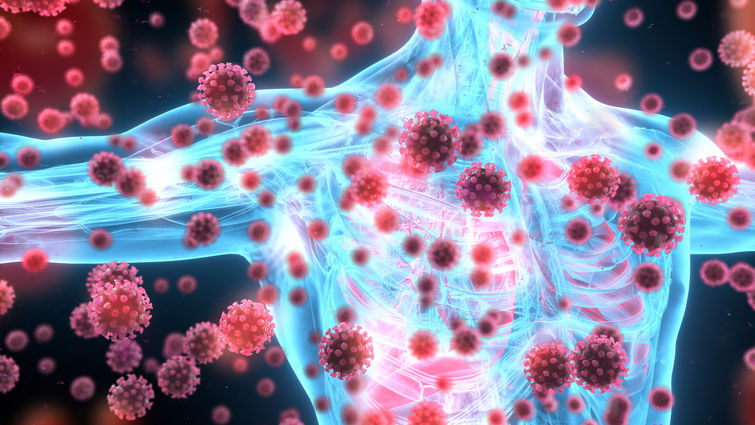
Immune system
Known risk groups for COVID-19 are constantly evolving as scientists learn more about the disease, yet one population will always be considered high-risk: immunocompromised.
The National Cancer Institute defines immunocompromised as someone who has a weakened immune system that lowers their ability to fight infections and other diseases. A person who fits in this category may also have longer lasting illnesses compared to someone whose immune system is functionally normally.
There are two types of immunocompromised populations: primary and secondary. Primary immunocompromised patients are born with immune deficiencies. Secondary immunocompromised patients take medications or have other medical conditions that cause them to have a weaker immune system. The medications can range from prescription pills to chemotherapy.
Adrian Cotton, MD, chief of medical operations at Loma Linda University Health, says patients considered immunocompromised are those with the following diseases or medical conditions:
- Cancer or those receiving chemotherapy
- Autoimmune diseases like lupus, rheumatoid arthritis, ulcerative colitis, etc.
- Transplant
- Heart disease, in particular those with heart failure and those with congenital heart disease
- Kidney disease
- Malnutrition
- HIV
- Diabetes
- Those receiving immunosuppressant therapy
With such a huge population falling into this group, it may be frightening to read the list. Cotton wants patients and their families to remain calm because, although they may be in this higher-risk group, the clinical severity of COVID-19 can vary depending on their specific underlying condition and general health.
“Although there are some who fit into this category, it is important for patients to know that even if you are considered at a higher risk, your risk can still vary,” Cotton says.
“Before jumping to any conclusions about how vulnerable you are to the disease and what your outcome might be if you contract COVID-19, I recommend the patient consult with their physician.”
Protection for those immunocompromised
Many of the same preventative measures taken by the general population should be followed for those with weaker immune systems. One of the major differences is making sure you are staying on top of any medications that are helping you keep your immune system strong during this time.
Do not forget to quarantine if possible, limit frequent contact with others and make sure you are getting enough rest.
For the most up-to-date information, visit Loma Linda University Health’s COVID-19 website.
